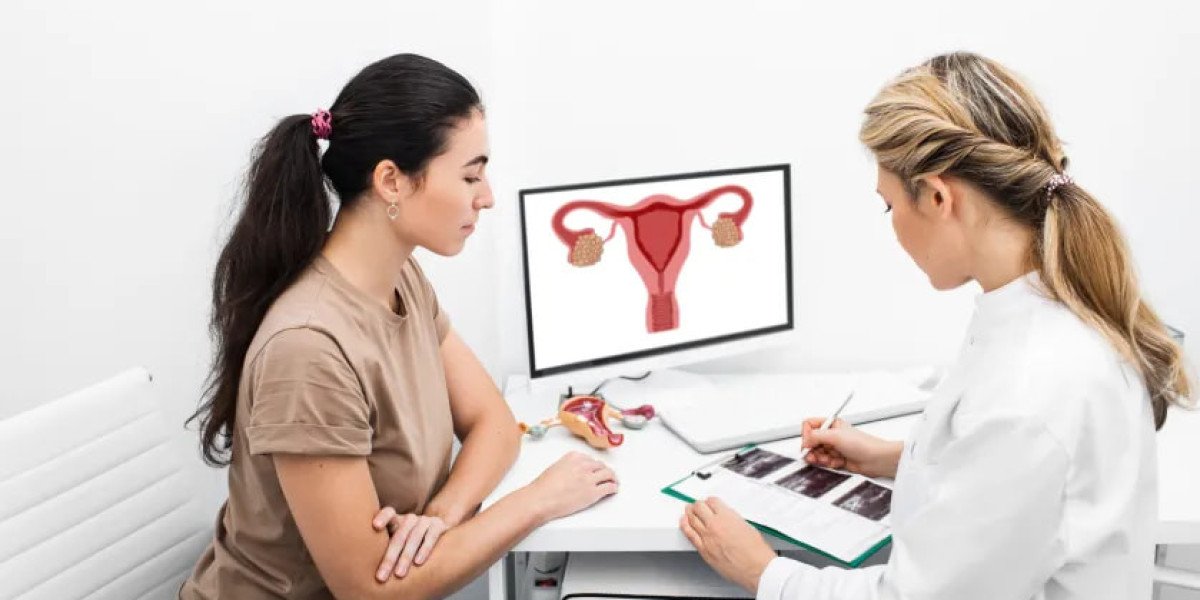Introduction
Awareness about health issues isn’t just a choice—it can be lifesaving. When it comes to female reproductive health, one condition deserves particular attention: endometrial cancer. That’s the kind of cancer that starts in the lining of the uterus (the endometrium). Because the symptoms can be subtle, and because many people don’t know the risks or don’t act when they notice something unusual, diagnosis often comes later than it should. Regular check‑ups and being alert to changes in your body are powerful tools in catching this condition early, when treatment is more successful.
What is Endometrial Cancer?
Endometrial cancer refers to the malignancy that arises from the lining of the uterus, known as the endometrium. It is one of the most common gynaecologic cancers in many high‑income countries. The lining of the uterus is a tissue that thickens and sheds during the menstrual cycle; when abnormal cells develop and begin to grow uncontrolled, that can lead to endometrial cancer. This differs from other types of uterine cancer (such as uterine sarcomas) because of the tissue it originates from and the way it behaves. Because the endometrium has an active role in the menstrual cycle, many of the signs of endometrial cancer are related to bleeding patterns or changes outside the typical cycle. The good news: when detected early, outcomes tend to be much better—but that relies on both awareness and access to appropriate care.
Why Regular Check‑ups Save Lives
Catching health issues early makes a big difference—and with endometrial cancer that truth is stark. Many women ignore signs such as unusual bleeding or assume changes are just part of ageing or menopause, and delay seeking help. But these delays can mean the disease progresses to a more advanced stage, when treatment becomes much more difficult and outcomes are less favourable. Regular check‑ups with a gynaecologist, especially if you have risk factors or notice concerning symptoms, provide the opportunity for early detection—whether via pelvic exams, ultrasound, or biopsy when indicated. Early stage disease not only improves survival but also often allows less aggressive treatment and fewer long‑term side effects. Also, being in touch with your healthcare provider means you have someone who knows your history and can pick up subtle changes, rather than trying to navigate symptoms alone. In short: regular check‑ups are your front line defence.
Risk Factors and Early Warning Signs
Understanding what makes someone more likely to develop endometrial cancer and what signs to watch for is vital. Some of the well‑established risk factors include: being overweight or obese; having type 2 diabetes or high blood pressure; getting older (especially beyond menopause); exposure to oestrogen without the balancing effect of progesterone; certain genetic conditions (for example, Lynch syndrome); and some hormone medications. On the warning‑sign side: abnormal vaginal bleeding (especially after menopause), bleeding or spotting between periods, heavier periods than usual, unusual or odorous vaginal discharge, pain in the pelvis or during intercourse, and changes in urinary or bowel habits may also accompany more advanced disease. While not every symptom means cancer, ignoring these flags is risky. If you notice anything out of the ordinary, don’t wait—it’s far better to check and find nothing serious than to delay and later regret it.
Prevention, Screening and the Role of Regular Check‑Ups
While there is no standard mass‑screening test for endometrial cancer for all women (unlike cervical cancer, which has Pap tests and HPV screening), there are effective prevention strategies and ways regular check‑ups come into play. Preventive steps include maintaining a healthy weight, managing conditions such as diabetes or hypertension, and discussing hormone therapies with your doctor if you are receiving oestrogen alone. For those at higher risk—such as women with Lynch syndrome or significant uterine bleeding—more vigilant monitoring is appropriate. During your regular gynaecology visits, you should mention any changes in bleeding or discharge, ask about your personal risk, and agree on when to return for review. The key is that you and your doctor are partners in watching for change—because early detection relies not just on tests, but on noticing and acting on symptoms and risk. Regular check‑ups then act as the safety net.
Treatment Options and Taking Action
Once endometrial cancer is detected, treatment depends on the stage, the subtype of cancer, overall health, and patient preferences. Common treatments include surgery (often hysterectomy with removal of fallopian tubes and ovaries), radiation therapy, hormone therapy, chemotherapy, and increasingly targeted or immunotherapies for certain cases. The most favourable outcomes are when the cancer is localised to the lining and detected early. If you live in Karachi and are concerned about your symptoms or risk, it is crucial to book an appointment with the best gynaecologist via Instacare—a convenient way to get expert care promptly. Early action significantly improves your chances of successful treatment and reduces the long‑term impact. Don’t wait for symptoms to become severe; make the appointment, share your history, ask about your risk, mention any changes in bleeding or discharge, and plan for the follow‑up together. Being proactive about booking, attending, and following your gynaecologist’s advice is a strong step towards safeguarding your health.
Conclusion
Endometrial cancer may not get as much public attention as some other cancers, but it is common, rising in incidence in many places, and when caught late can carry serious consequences. The power lies in awareness: knowing the risk factors, recognising warning signs, attending regular gynaecology check‑ups, and acting quickly if something seems off. Prevention through healthy lifestyle, treating underlying conditions, and open communication with your doctor all matter. If you notice abnormal bleeding, unusual discharge, or pelvic pain, do not dismiss it. And if you’re based in Karachi and need expert care, use Instacare to connect with a top gynaecologist and take control of your health. Early detection saves lives—it’s not just a saying, it’s a fact.
Frequently Asked Questions (FAQs)
Q1: If I’m still menstruating, should I still be concerned about endometrial cancer?
Yes. While endometrial cancer is more common after menopause, it can occur in younger women, especially if they have risk factors like obesity, diabetes, or genetic syndromes. If you have irregular bleeding, heavy periods, or unusual spotting between cycles, it’s worth a visit to your gynaecologist.
Q2: Is there a simple screening test I should be doing for endometrial cancer?
Currently there is no universal screening test for endometrial cancer in women with no symptoms or high risk. The focus is on awareness of symptoms, risk‑factor management, and prompt evaluation when changes in bleeding or discharge occur. Your gynaecologist can assess your risk and may suggest periodic ultrasound or biopsy if indicated.
Q3: What lifestyle changes can help reduce the risk of endometrial cancer?
Key changes include maintaining a healthy body weight, staying physically active, managing diabetes or high blood pressure, discussing with your doctor any hormone therapies especially unopposed oestrogen use, and ensuring that you have regular gynaecological check‑ups. These changes don’t guarantee prevention, but they significantly lower the risk and improve overall health.








